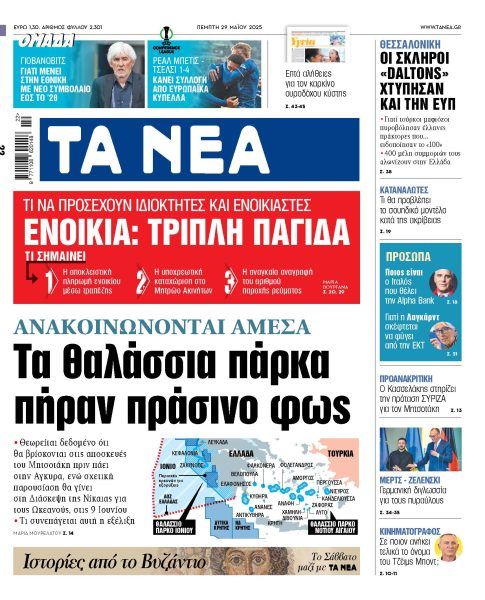Food price reduction could be reflected within two weeks / day

At the same time, the introduction of a food price comparison tool will take longer.
The Ministry of Economics (MoE) has been signed today for a reduction in food prices.
The Memoranda was signed by the Minister of Economics Valainis, Noris Krūzītis, Executive Director of the Latvian Food Traders Association, Janis Endziņš, Chairman of the Board of the Latvian Chamber of Commerce and Industry, and Janis Šolks, Chairman of the Board of the Central Union of Latvian Dairy Farmers.
The Memorandum was also signed by Ināra Šure, Chairman of the Council of the Latvian Food Enterprises Federation, Guntis Gutmanis, Chairman of the Board of the Agricultural Organizations Cooperation Council, Juris Lazdiņš, Chairman of the Board of the Peasant Saeima, Zaiga Liepiņa, Director of the Consumer Rights Protection Center and other partners.
The Memorandum provides for the introduction of a low price food basket, the introduction of a price comparison tool, and the promotion of local products in stores.
The creation of a low -priced food basket will provide that at least one product with the lowest price category will be provided in the categories of 10 goods, and with some regularity, the products will be changed to other products from the same category.
Valainis pointed out that the price comparison tool would facilitate the competition of merchants. Its activities would provide traders once a day to transfer information on the lowest prices for the Central Statistical Bureau (CSB), which will publish them. The data will be available for different price comparison tools and will be published on the website of the Ministry of Economics (EM).
At the same time, the implementation of the price comparison tool requires changes to the Consumer Rights Protection Act so that traders are obliged to provide this data to the CSB, thus contributing to the competition of traders.
Valainis said that the retailer Rimi owner Danish retail company Salling Group said that in Denmark, with the introduction of such a price comparison tool, food prices in the country have fallen by 17%and inflation has fallen in the country.
Memorandum also provides for local food promotion campaigns.
Valainis said that the EM and its subordinate authorities « from day one will begin to monitor the situation to come to some conclusions ».
The Minister of Economics also pointed out that the EM has been working on food price reduction since November and it was intensive work, during which the Competition Council (CP), the Consumer Rights Protection Center (CRPC), the Ministry of Agriculture (MoA) worked on solutions to reduce food prices.
The goal set by the EM is to achieve a 20% reduction in the need for the most necessary grocery groups, as well as to increase the proportion of Latvian food in stores.
Initially, the MoE offered amendments to the law, but the industry offered to achieve the result itself, and « from the EM point of view, it does not matter whether they are amendments to the law or traders’ own initiative, » said Valainis.
The MoE has undertaken to monitor the implementation of the Memorandum, as well as committed to postponing the directed amendments to the Law on Failure Trade Practice if the Memorandum’s goals are achieved.
Minister of Agriculture Armands Krauze (ZZS) said the Ministry of Agriculture would also keep track of the memorandum.
Jānis Endziņš, Chairman of the Board of the Latvian Chamber of Commerce and Industry, said that, in both traders and manufacturers, the law and regulatory framework should not interfere with price issues and signing the memorandum has been a logical solution.
Endziņš emphasized that initially lower prices in the basket of basic products and increasing the share of domestic products seemed to be incompatible goals, but there were solutions to achieve both goals.
It has also been important to agree so that after signing the memorandum, the CP does not punish traders. Endziņš pointed out that the CC had given the opinion that the agreement complies with the law.
Memorandum-signed trader organizations include about 75-80% of market players, including « top! », « Elvi Latvia », « Aibe », « Narvesen », « Maxima », « Lidl », « Rimi » and others. At the same time, the EM continues to work with non -memoranda retailer chains.
Endzins also said that large traders are waiting for the Saeima’s Commission for National Economy, Agriculture, Environment and Regional Policy on May 28 on whether amendments to the Law on unfair trade practices are being promoted. Traders are ready to fulfill the memorandum, provided that there is no law.
At the same time, a sociological survey is expected to measure whether buyers have felt that the retail chains have a low -priced food basket, and will measure whether or not the loyalty of buyers to the local product will change or change.
It has already been reported that in March this year, the Saeima’s Economic, Agricultural, Environmental and Regional Policy Commission called for the MoE to review and evaluate amendments to the Law on Failure Trade Practice.
At the commission meeting, the Saeima Law Office called for the MoE to review the amendments to the bill, as there were several risks of the Constitution.
It is also reported that the bill developed by the MoE is to promote fair trade practices and to ensure equal competition in the retail market in the grocery product, as well as to balance cooperation in cases where the agricultural and grocer buyer, which is economically stronger, is used unfairly, thus damaging the supplier.
The draft law provides for the addition of a list of unfair trade practices with equal treatment, non -discrimination of the buyer.
The MoE points out that the norm contained in the draft law would directly prevent a different approach from agricultural and grocer buyers to apply significantly different conditions of cooperation and trade, including mark -ups, one supplier or supplier groups, compared to equivalent goods of other suppliers.
So far, it is planned to clarify the existing manifestation of unfair trade practices for unilateral amendments to the contract, as well as to review liability for the implementation of the law, increasing the penalty to 4% of the net turnover in the last reporting year, but not less than 700 euros.







